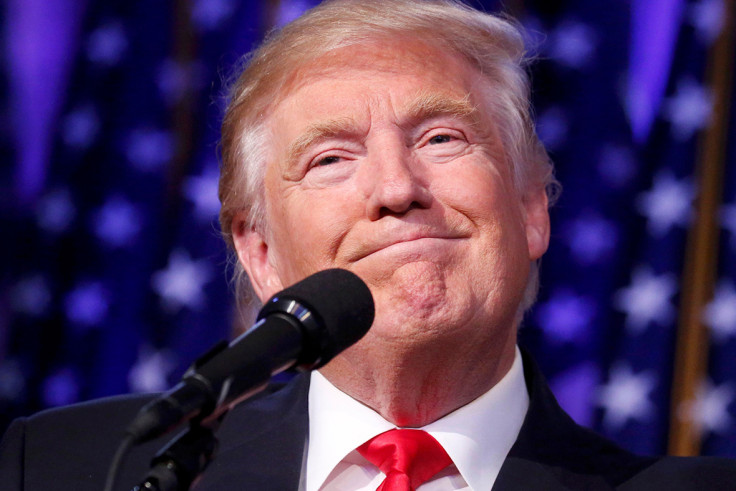US markets gain ground as fears of global sell-off subside after Trump's win
Major indices gain ground, while dollar recovers from losses and gold posts biggest daily gain since Brexit vote.

US stocks edged higher early on Wednesday (9 November), dismissing fears of a sell-off after Donald Trump pulled off a dramatic upset to beat Hillary Clinton in the race to the White House and became the 45th President of the United States.
Soon after the opening bell, the Nasdaq was 0.09% higher, while shares on the Dow Jones and on the S&P 500 gained 0.19% and 0.18%, respectively. Equity futures had plunged overnight as it became apparent the Republican candidate would replace Barack Obama in the Oval Office, with S&P futures hitting a trading limit after falling 5% before the open.
However, once the initial shock began to subside, US futures pared losses and European markets recouped most of the losses incurred shortly after the opening bell.
"Markets have pared their earlier moves following the substantial knee jerk reaction to Trump securing an unlikely victory over rival Hillary Clinton," said Oanda's senior analyst Craig Erlam.
"While the result was unexpected, the reaction in the markets stems once again from them being poorly positioned heading into the vote, overconfident that Clinton would ease to victory. The greatest oversight was the significance of the anti-establishment feeling in the US, similar to that which prompted the UK to quit the EU in June."
The Republican candidate won key swing states – such as Florida, Ohio and North Carolina – which cleared the way for his Brexit-style upset and plunged markets across the world in the red.
Asian markets – which were open during the US election – suffered 5% falls as it became clear Trump would move in to the White House.
European markets opened as much as 3% down, but by early afternoon (9 November) trading Britain's FTSE 100 Index, Germany's DAX and the Cac 40 in France had recovered a large slug of those losses.
"A Trump victory has so far failed to trigger the global stock market panic that many expected," said Laith Khalaf, senior analyst, Hargreaves Lansdown.
"As with Brexit, this is a cautionary reminder not to try to base investment strategies on the outcome of political events. Sometimes the unexpected happens, and when it does, you can't predict the direction markets will take."
Volatility spread to the currency markets, with the dollar suffering its biggest daily decline since the Brexit vote, after falling as much as 3.5% against the yen, which is traditionally seen as a safe haven by investors.
However, as calm gradually returned to global markets following Trump's acceptance speech, the dollar reversed some of its losses. As of 1.14pm GMT, the greenback was 0.11% lower against the euro, trading at 0.9074 euro cents, and tumbled 1.10% against the yen to ¥104.03 but gained against the Swiss franc, rising 0.13% to CHF 0.9792.
The US currency surged 1% and 0.75% against its Canadian and Australian counterparts, exchanging hands at CAD$1.3425 and AUD$1.3008.
"The first speech by President-elect Trump has had a calming effect on the markets," said Kathleen Brooks, research director at City Index. "This suggests that a win for President Trump is not yet America's Brexit moment."
Gold traders, meanwhile, enjoyed a profitable day, with the precious metal posting the biggest intraday rally since the Brexit vote in June, when it rose as much as 8%.
© Copyright IBTimes 2025. All rights reserved.






















